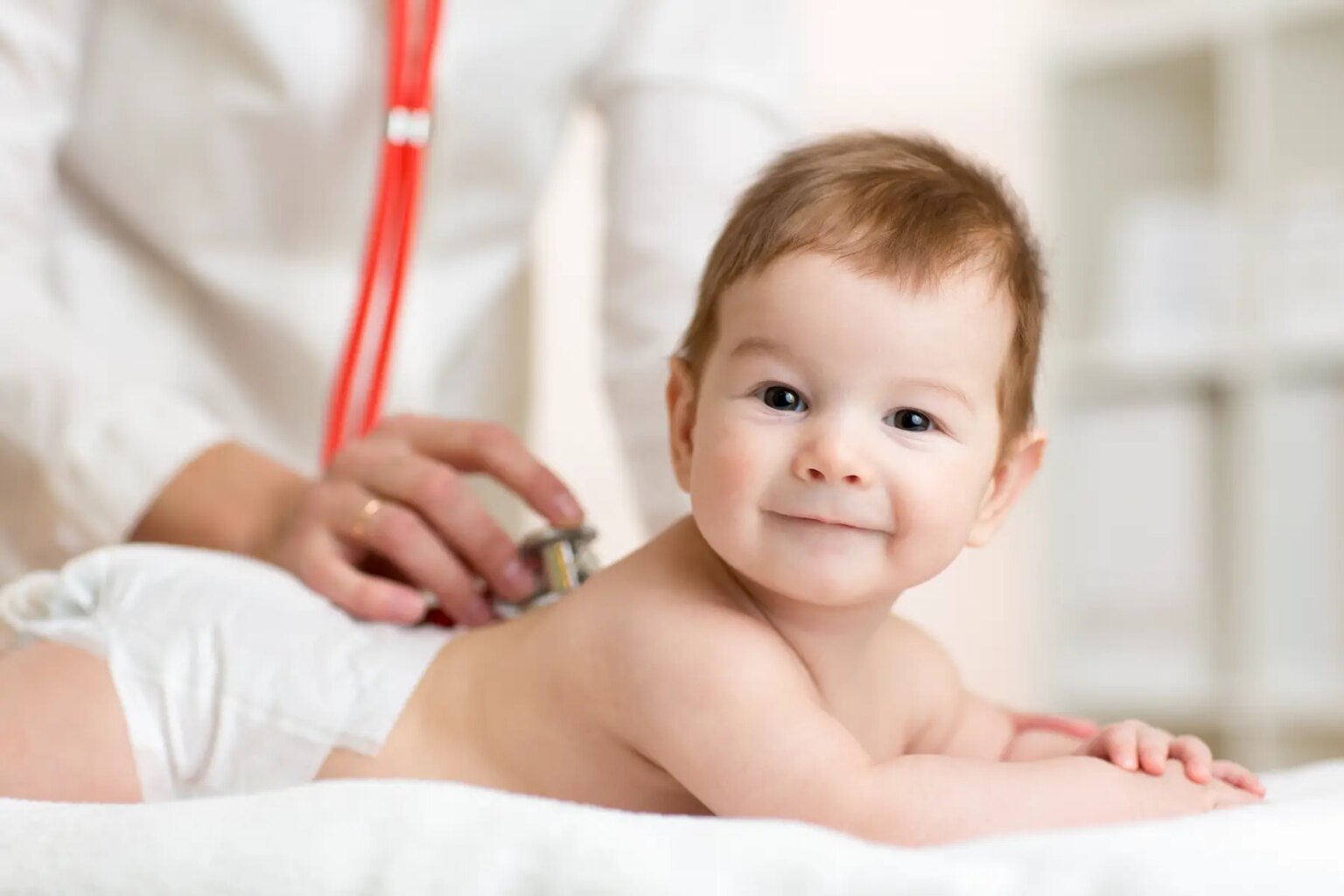When moving to a new country, your children’s healthcare will be at the very top of your list of concerns; along with choosing a suitable school and arranging childcare. Fortunately, your little ones will be in very safe hands when it comes to healthcare in Austria. But before you start packing, it’s a good idea to read up on the subject so you know what to expect.
With this in mind, this helpful guide provides everything you need to know about children’s healthcare in Austria, including the following information:
- An overview of children’s healthcare in Austria
- How to access healthcare for your children in Austria
- Taking your child to the pediatrician in Austria
- Taking your child to see a doctor or specialist in Austria
- Children’s hospitals in Austria
- Children’s dental care in Austria
- Mental healthcare in Austria
- Preventative healthcare programs for children in Austria
- Useful resources
An overview of children’s healthcare in Austria
In Austria, pediatric and adolescent health provision is built on a complex system that spans the Ministry of Health, social insurance funds, and provincial boards. Typically, primary pediatric care runs through General Physicians and General Pediatricians who have developed long-term relationships with individual children. Typically, once you sign up with a GP, they will be your first point of call and refer you to a specialist doctor if need be.

Secondary care is mostly provided by children’s hospitals, while tertiary (highly specialized) care runs through the state university hospitals as well as one private university hospital. The training program of residents takes six years and is completed by a final examination.
Fortunately, the rate of child mortality in children under five years old has fallen significantly in Austria over the past twenty years. Essentially, the launch of the Mutter-Kind-Pass (Mother and Child Passport) in 1974 was an important step in reducing infant and child mortality. However, that rate is still approximately 30% higher than other leading nations and is on par with other German-speaking countries.
In recent years, access to pediatric care in Austria has significantly decreased, particularly in urban areas like Vienna. A survey found that 50 pediatric practices in the city were no longer accepting new patients – compared to under 15 practices in 2012.
How to access healthcare for your children in Austria
Luckily, pretty much everyone in Austria has access to medical care and you will receive your European Health Insurance Card (EHIC) when you become a resident. Along with your card, a photo ID is all you need to take with you to medical appointments. Children and spouses of expats can get co-insurance with the working member’s insurance scheme. Be sure to reach out to your employer; co-insurance of dependent family members does not happen automatically.
Ordinarily, in urban areas, most parents in Austria tend to contact a pediatrician for medical investigations and treatment of their children. However, in rural areas, GPs play a bigger role. Importantly, both pediatricians and GPs run the Mutter-Kind-Pass national preventive program. This includes routine vaccinations and is free of charge.
In most cases, the best way to start out is to seek a GP in your area and book a routine medical check-up for your family. State insurance covers these checks. This also allows you to establish a trusting relationship with your doctor. Conversely, if you want to see a specialist, you are perfectly able to book an appointment to see one without a referral in Austria. Praxisplan.at is a great way to search for a GP or specialist in your neighborhood.
Public healthcare for children in Austria
Remarkably, health insurance in Austria is universal, highly thought-out, and inclusive. Furthermore, for those with low income or unemployed, healthcare is still free. You can read more about this in our guide to social security in Austria.

Generally, families in Austria attend doctors who are under contract with their social insurance, which means that health care is free of charge. However, this limits the amount of time that patients will have with a doctor, often resulting in long waiting times. Generally speaking, 60 to 90 patients per day is the norm. Consequently, more and more pediatricians are providing health care on a private basis. In these cases, parents will pay doctors directly and claim back a certain percentage from their social insurance later.
A parent’s insurance will cover children’s healthcare in Austria, including all medical and surgical treatment. Additionally, in 2017, the government got rid of the co-payments for hospital stays of children and young people (for adults the co-payment charge is typically €15 per day). The provision of medical services is the same for public and private insurance patients and the only difference lies in the level of comfort.
Socially balanced access to health services is key in Austria. As a result, those falling below a certain monthly income level are exempt from fees for prescription medicine. The same applies to asylum seekers.
Private healthcare for children in Austria
Legal residents have the option of arranging their own private health insurance to supplement their public insurance. Typically, residents get private insurance to enable them to access shorter waiting times. This also allows them to access a higher standard of wards in hospitals and more personalized care. Private insurance also provides cost-free medication, glasses, contact lenses, and more. That said, private health insurance can be quite pricey; plans start from €30 per month.

Local expert
Sebastian Arthofer
Insider tip
A consultation with a public pediatrician takes about 5 minutes, while private doctors don’t feel the pressure and will spend 30–40 minutes on your appointment.
There are many private health insurance providers in Austria, all of which highly regulated by the Financial Market Authority. The leading groups are Allianz Care and Cigna Global. Both offer a range of plans to suit all people and situations. Generally, the older you are the more you will pay. For example, a plan for children below 18 could cost around €30 per month. However, the same plan for someone above 65 may cost as much as €450 to €500 per month. Additional factors include both gender and pre-existing conditions.
Notably, if you are a tourist, you may still access doctors in Austria. However, it is always advisable to take out travel insurance, with companies such as World Nomads which provide flexible packages. This is because any serious injuries, such as ski accidents, for instance, will set you back enormous amounts of money if you aren’t insured. For smaller issues, you can take your child to a clinic and submit your receipt to your insurance provider later on. Generally, a routine doctor’s visit will cost anything between €50 and €100.
Discover how to choose the right insurance provider for you by reading our article on health insurance in Austria.
Taking your child to the pediatrician in Austria
Essentially, children’s healthcare in Austria is a mixed system of GPs and pediatricians, and this depends on whether you live in a rural or urban area. Access to pediatricians and other specialists is widely available throughout the country and you don’t usually need a referral to access them. For children and adolescents up to 19 years of age, 70% of the services fall under the statutory health insurance provided by a ratio of 2.5 GPs to 1 pediatrician.

As of 2013, there were 99 pediatricians per 100,000 children in Austria. Ten years prior to this, the ratio was 70 pediatricians per 100,000 children. In the same decade, pediatricians in hospitals and private practice increased from 35 to 45 per 100,000 children. To put that in perspective, over the same time frame, the number of GPs only grew from 73 to 75 per 100,000.
Typically, the best way to find a pediatrician (or in fact any doctor) is to head to Praxisplan.at. You can then search under ‘areas of expertise’ for Kinder und Jugendheilkunde (pediatrics) nearest your location.
Routine childhood health checkups in Austria
In Austria, health checkups for children are free of charge with your state health insurance. However, if you want an investigative in-depth medical check, AUSTRIAN HEALTH offers an elaborate program. This includes heart, abdomen, kidneys, and hip sonography, blood test, urine analysis, hearing test, eye test, vaccination check, and detailed advice for around €1,500. Additionally, they can provide allergy testing, among other checks.
Vaccinations for children in Austria
Interestingly, vaccinations are voluntary in Austria. Therefore, parents can decide whether, when, and for which diseases their child will have vaccinations against. In Austria, there are currently 12 free vaccines for children up to 15 years. The vaccination program starts with the following: diphtheria, tetanus, pertussis, poliomyelitis, hepatitis B, HIB, pneumococcal vaccine, rotavirus, and the combined vaccine against measles, mumps, and rubella (MMR) for children aged between zero and six years old.

Children between the ages of 7 and 15 will also receive booster injections for the above. Additionally, both boys and girls may have the HPC vaccine (added in 2014) at age 9. They may also have the meningococcal vaccine at 12 years old. Finally, optional vaccines such as those against tick-borne encephalitis (TPE) and influenza are available with a subsidy.
Ordinarily, a GP, pediatrician, local health authority, or school doctor will administer vaccinations. Hospitals do not typically offer these.
Taking your child to see a doctor or specialist in Austria
As mentioned above, you don’t need a referral to see a specialist in Austria. You can simply book an appointment and take your e-card with you. Luckily, Austria is known for having doctors with a high level of training across all disciplines. Furthermore, doctors in specific fields are plentiful throughout the country. As a result, you will find that Austria is an excellent place to fulfill your child’s healthcare needs with all fields of specialist medicine pretty much covered.
Children’s hospitals in Austria
In essence, secondary care for pediatrics is usually provided by children’s hospitals in Austria. The density of children’s hospitals varies throughout the country’s nine provinces. Vienna, Lower and Upper Austria, and Vorarlberg, for instance, have a relatively high density of children’s hospitals. Conversely, the comparatively large area of Styria only has two children’s hospitals. If the unexpected happens, refer to our handy guide to emergency numbers in Austria.
Typically, if there is a pediatric service near the child’s home, the doctor will discharge the child after a relatively short time of two to three days. Then, the family doctor or pediatrician will look after any further treatment. However, if the child requires additional specialized healthcare treatment, for instance, for diabetes or chronic inflammatory bowel disease, this will be done in a hospital.
Here are some of the main children’s hospitals in Austria:
- Gottfried von Preyer’sches Kinderspital – Vienna
- Kinderklinik Glanzing – Vienna
- St. Anna Kinderspital – Vienna
- Landes-Kinderkrankenhaus – Linz
Children’s dental care in Austria
Essentially, all children have access to free dental care in Austria. Coverage for basic dental is included in the broad-ranging social security program. Typically, orthodontics (braces and retainers) is not covered. However, in 2015, the health insurance fund began covering dental braces for children under 18 in the case of serious misalignment. Generally, you can find a dentist for your child at What Clinic, or consult the GCR, which lists the top-rated dentists in Austria. You can read more about this in our guide to dentists in Austria.
Mental healthcare in Austria
In the main, mental health services are the responsibility of each of the nine Austrian federal states. Reforms in the late 70s changed the principles for treatments for mental health. The changes favored dehospitalization and community psychiatry. As a result, the size of psychiatric hospitals was reduced. Now, more mentally ill patients are treated as in-patients in non-psychiatric wards. Child and youth psychiatry is also integrated into the Austrian Structural Health Plan (ÖSG).
According to WHO, in Austria, there are 262 psychiatric beds for children and adolescents in general hospitals and 135 beds in mental hospitals. Psychiatric services for children and adolescents are separate from other mental health services. Importantly, in 2017, the national Austrian Suicide Prevention Plan (SUPRA) and SUPRA-web portal was launched.
In recent years, the demand for child and adolescent psychiatric care has surged. This has led to significant waiting times in the public system; currently (2024), it takes approximately 90 days to get an appointment. If you need quicker access, private health insurance can offer a valuable solution.
Preventative healthcare programs for children in Austria
In essence, there is a tradition of preventive health programs in Austria. This includes the 1974 Mutter-Kind-Pass that follows pregnant mothers and children right up to the age of five and is still in practice today. The program includes the vaccination program and free health check-ups for children.
Additionally, there is funding for the National Nutrition Action Plan which includes nutritional goals. There is also the National Action Plan for Physical Activity and the 2011 Child and Youth Health Strategy. Furthermore, the 2014 Health Promotion Strategy focuses on several preventative measures. These include early childhood support, healthy crèches and nursery schools/kindergartens, healthy schools, healthy living environments, healthy lifestyles for young people, and health literacy of young people.
Useful resources
- Austrian Agency for Health and Food Safety – a public health portal with health information for Austrians
- Healthy Austria Fund – the national funding agency for health promotion in Austria
- Praxisplan.at – a helpful website for finding doctors near you
- Austrian Chamber of Pharmacies – a listing site to find a pharmacy near you







